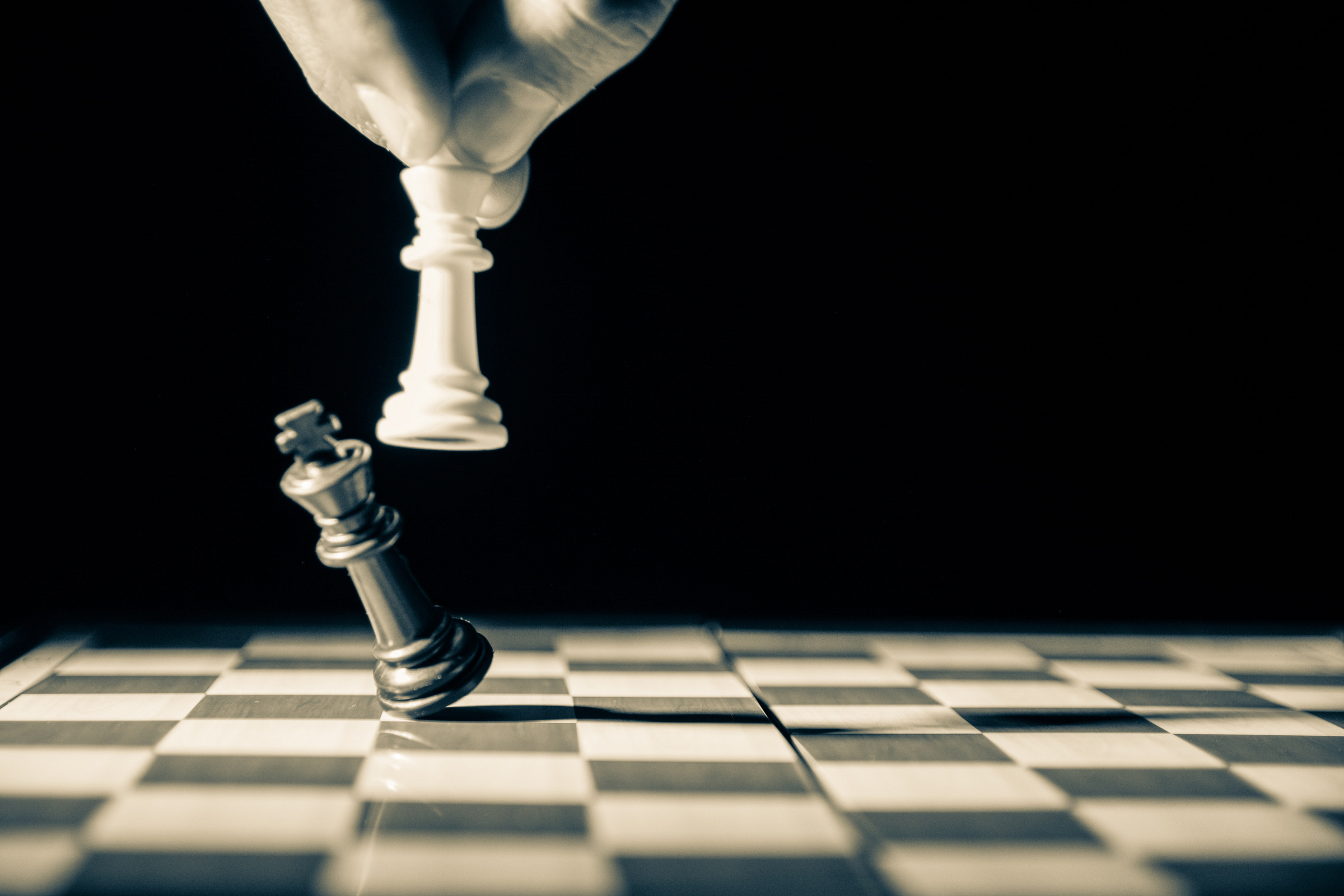Beyond the Board: The political dimensions of the world chess championship
The match between Russia's Ian Nepomniachtchi and China's Ding Liren is laced with geo-political implications amid Russia’s invasion of Ukraine.
Russia's Ian Nepomniachtchi and China's Ding Liren are currently taking part in a 14-game tournament to crown a new world chess champion for the first time since Magnus Carlsen claimed the title in 2013.
Carlsen, the current No. 1 ranked player in the world, opted to voluntarily relinquish the title he held with an iron grip over the past decade. The 32-year-old Norwegian cited a lack of motivation to prepare for another world championship cycle as the reason behind his abrupt decision.
In Carlsen’s absence, Ding and Nepomniachtchi will not only compete in a championship contested without the best player in the world but one that also happens to be laced with political connotations and geo-political strife amid Russia’s ongoing invasion of Ukraine.
Nepomniachtchi is set to compete under a neutral flag under FIDE regulations following Russia's invasion of Ukraine. And while the No. 2 ranked player was among the 44 Russian players who signed an open letter condemning the war, his potential victory could still be seen as a boon for a country that remains banned from participating in most international sports events.
There are several other connections between Russia and the ongoing world championship. The president of the International Chess Federation (FIDE), Arkady Dvorkovich, is a former deputy prime minister who served during Dmitry Medvedev’s tenure in office and was considered an important figure in Russian politics at the time.
Dvorkovich initially condemned Russia’s invasion of Ukraine in March 2022. He later quit his position as chairman of the prestigious Skolkovo foundation after Russian lawmakers criticized his comments as a “national betrayal.” Shortly thereafter, Dvorkovich posted a statement on the Skolkovo website that he was “sincerely proud of the courage of our (Russian) soldiers.”
Even the tournament’s official sponsor, retail brokerage and investment bank Freedom Holding Corp, maintains ties to Russia. The bank is owned by 35-year-old Timur Turlov, a Russian-born Kazakh entrepreneur who is currently facing government sanction in Ukraine. Nevertheless, Freedom Holding Corp is supplying the tournament’s €2 million prize fund.
Meanwhile, a victory for Ding would be seen as a major victory for China during a period of worsening U.S.-China relations already strained by U.S. support for Taiwan, trade frictions, and diplomatic snubs.
In February 2023, President Joe Biden ordered the U.S. Air Force to shoot down a Chinese-operated balloon off the southeastern U.S. coast after security officials say it was spying on sensitive military sites. China’s foreign ministry condemned the downing as “a serious violation of international practice,” which led U.S. Secretary of State Antony Blinken to cancel a visit to Beijing. Shortly thereafter, China helped broker a diplomatic deal between Saudi Arabia and Iran—a deal that emphasize the country’s growing clout in the Middle East as well as its willingness to fill in foreign policy vacuums left by the U.S.
However, this year’s world championship is far from the only chess tournament to take place against a backdrop of political tension.
In 2016, Carlsen defended his title against Sergei Karjakin—a staunch Russian nationalist and fierce supporter of Russian president Vladimir Putin. The tournament took place in New York City shortly following the 2016 presidential elections that saw Donald Trump become the 45th U.S. President. And while the players duelled over the chess board in a quiet room at the South Street Seaport, hundreds of demonstrators dissatisfied with the results of the elections were protesting just a few blocks away.
At the time, FIDE was helmed by Kirsan Ilyumzhinov, the eccentric former president of the Russian republic of Kalmykia. Ilyumzhinov was a close ally of Putin who ruled the predominantly buddhist republic with an iron fist while fostering a cult of personality rooted in his love for chess. He played occasional chess with Libya’s former despot Muammar Qaddafi and once claimed to have been abducted from his Moscow apartment by aliens. He was added to a list of U.S. sanctions in November 2015 for allegedly “assisting or acting on behalf of” the Syrian government and was eventually suspended from his position at FIDE for violating the organization’s code of ethics.
Chess has long played a role in Russian politics. The Soviet Union weaponized chess as an instrument for propaganda during the Cold War years. Their dominance over the chess board allowed them to espouse the greatness of Soviet culture and the superiority of their political system. The Soviets remained a dominant force for more than three decades until a young American prodigy named Bobby Fischer usurped the throne from Soviet grandmaster Boris Spassky in 1972.
Fischer had almost single-handedly contributed to the resurgence of chess in the United States at the time with his brash personality and remarkable talent. In the lead-up to the 1972 World Championship, it became clear that the upcoming match-up had become a matter of foreign policy. President Richard Nixon’s National Security Advisor Henry Kissinger even made a personal phone call to Fischer urging him to play in the tournament for the “good of the country.”
Fischer’s eventual success captivated his countrymen and served as a metaphor for the U.S.’s victory over their political rivals. Now, more than 50 years later, Russia is once again in a position to regain its standing as a chess powerhouse.




Very interesting outlook on the game, which minus Magnus has a glaring lack of star power this year.